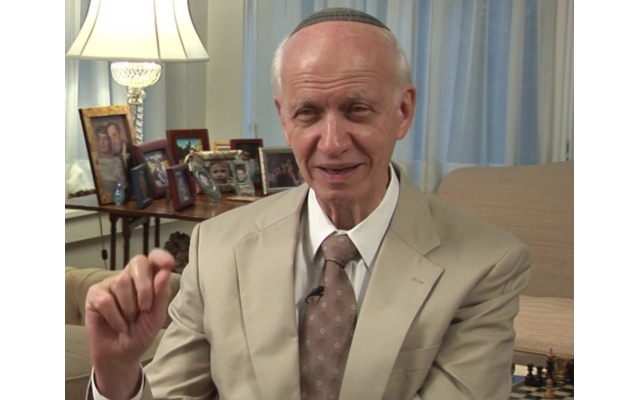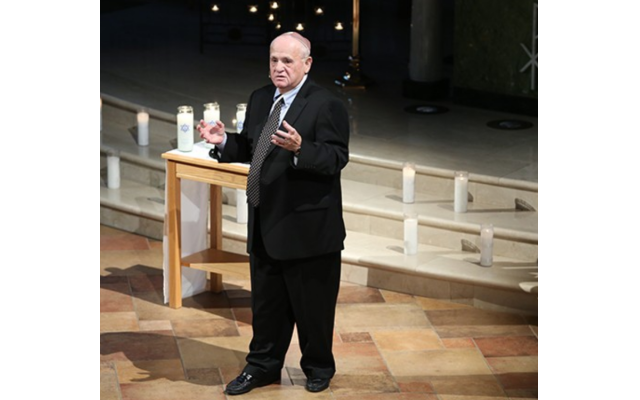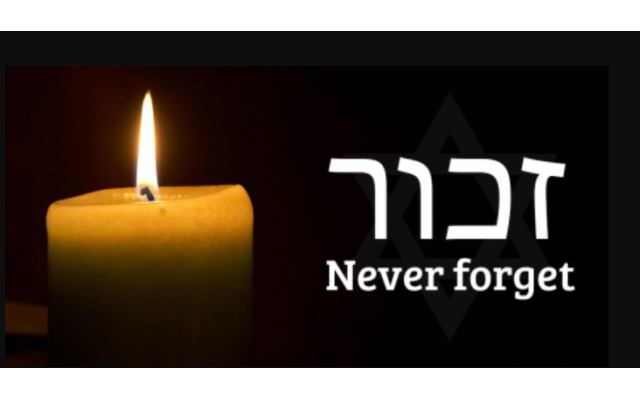Holocaust Observance Shapes Local, Global Thinking
Leading American Rabbi Yitz Greenberg maintains the Holocaust transformed our understanding of the importance of effective action.
For Rabbi Irving Greenberg, understanding the impact of the Holocaust is understanding the nature of politics power in recent history. Greenberg, who is better known as Yitz, is among the most influential Jewish religious thinkers in post Holocaust American life. He believes that the Holocaust has shaped contemporary Jewish life and religious thought over the past 75 years.
From his home in Jerusalem, Greenberg described how he believes the Holocaust has changed Jewish perceptions in the world.
“There was a fundamental ethical shift. It’s a shift from powerlessness to power. And ethically it means you have to take on power if you intend to live. And for that matter, you have to develop an ethic of power because when you have power, you can do things, you can cause damage or do good things.”
This month’s observance of Yom Hashoah, Holocaust Remembrance Day in Atlanta, is the 56th anniversary of the holiday, one of the longest continuously observed community events. The commemoration at the Greenwood Cemetery Holocaust memorial is sponsored by the William Breman Jewish Heritage Museum, the Atlanta Federation of Greater Atlanta, and Eternal Life-Hemshech, which was founded by Holocaust survivors and their families.
Rabbi Joe Prass directs the museum’s Weinberg Center for Holocaust Education. He believes that the implicit message of the Holocaust is one of direct action.
“I always try to say that the Holocaust is both a Jewish story and a human story. The Holocaust happened to the Jews, but the story also involves humanity’s failure to act. And we, as both Jewish and non-Jewish communities, have to learn that lesson. And we have to put that lesson into action, whether it is directed at us or any other community around the world.”
The centrality of the Holocaust, in Atlanta Jewish life can been seen in this year’s offering at the Atlanta Jewish Film Festival, where a quarter of presentations had themes reflecting on the Holocaust.
The Rothschild Lecture at Emory’s Tam Institute for Jewish Studies last month was also centered on the Holocaust. Two of the most prominent public structures, one at the Marcus Jewish Community Center of Atlanta, the other at Greenwood Cemetery in Southwest Atlanta, are dedicated to the memory of those who perished at the hands of the Nazis and their supporters.
On April 15, the March of the Living, the Holocaust educational program will feature an international broadcast honoring survivors who helped establish the State of Israel and participants include a few Atlanta olim who emigrated following their participation in the march.

Greenberg, who grew up in a distinguished Orthodox family and was ordained as a modern Orthodox rabbi, also has a Ph.D. in American history from Harvard University. Today he is scholar in residence at Yeshivat Hadar, the liberal-leaning American Jewish educational center in New York City.
At the age of 87, he has summarized his view of the post Holocaust world in a recently completed book entitled “The Triumph of Life.” In it he describes how American Jews, particularly, whether Orthodox or liberal rapidly changed their thinking about Zionism and got behind the idea of a modern Jewish state, beginning in the 1940s. He considers it ethically to be “a worldwide transformation of major proportions.”
The Holocaust, he believes, not only transformed Jewish thinking after World War II, but political thinking among many others in the world.
“It is no coincidence that after World War II we had a series of liberation movements in people who were vulnerable or potential victims, who had been treated as inferior and pushed around, who realized that they have no other choice if they want to survive or protect themselves than to take power.”
According to Greenberg, perhaps the most profound change to come from the experience of the Holocaust is the way it altered relations between Christians and Jews, both in the Roman Catholic and Protestant churches.
“I don’t think I could think of another example in history,” Greenberg said, “where a religion repented and reinterpreted parts its own sacred scriptures and its own highest authorities and rejected them. You may recall, three or four years ago the American Lutheran church voted to reject Luther’s teachings about Jews. And of course, Luther was one of the most evil of the anti-Semitic interpretations of Christianity. But still, it’s an amazing thing to think about.”

For the past 10 years, Congregation Etz Chaim, the Conservative synagogue in East Cobb, has partnered with the Catholic Church of St. Ann to co-sponsor a Yom Hashoah event.
The synagogue’s Senior Rabbi Daniel Dorsch maintains that as time goes on, the holiday and its ethical influence has become increasingly important.
“As Jews and as Americans, the lessons of the Holocaust remain more relevant now than ever. While there are elements of it that certainly are a particular Jewish tragedy or make this a particularly Jewish tragedy, there is no doubt that its lessons about standing up for what you see is right are more important now than ever.”
For Greenberg, the words “Never Again” is not just a slogan but a call to action.
“It’s the delayed reaction to this recognition that if you’re on the short end of the stick you cannot depend on the goodwill of the oppressors because when there’s no check on them, they can go all the way to kill you, totally.”
This year’s Yom Hashoah program April 11 is available on The Breman Museum website, https://www.thebreman.org/-YH21.




comments